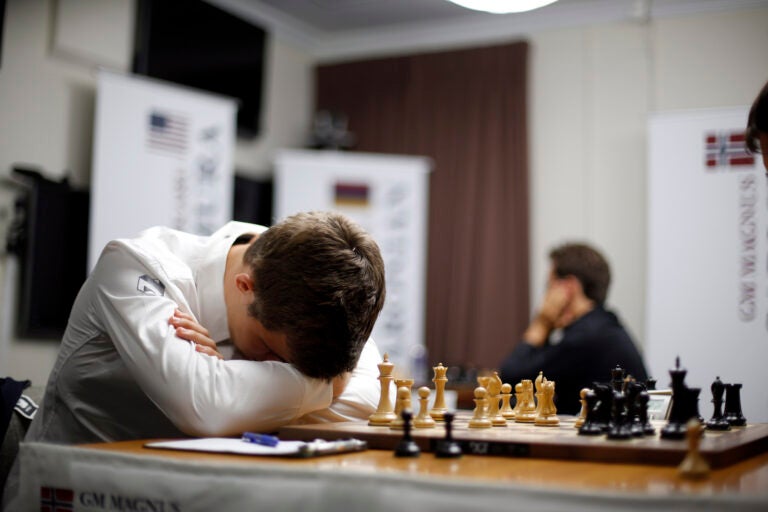When Being ‘Gifted’ No Longer Feels Like a Gift
We take a look at giftedness — how it’s defined, who qualifies as gifted, and how our understanding of giftedness is changing.
Listen 48:31
Magnus Carlsen, of Norway, rests during his match against Maxime Vachier-Lagrave, of France, in the sixth round of the Sinquefield Cup chess tournament Tuesday, Sept. 2, 2014, in St. Louis. (AP Photo/Jeff Roberson)
When psychologist Lewis Terman launched his decades-long study of high-IQ children in 1921, he had a specific goal in mind: to prove that “gifted” people were born leaders, and superior in just about every way. Although his theory didn’t pan out, Terman did kick off national interest in identifying and cultivating intellectually gifted children.
Just over a century later, experts in science, education, and psychology are grappling with questions about how we define giftedness, who qualifies as gifted, how we should teach and treat gifted children, and where the limits of their talents lie.
On this episode, we hear stories about the challenges of growing up gifted, how musical prodigies are made — and identified, and what a chess wunderkind has to teach us about the value of raw talent vs. experience.
ALSO HEARD:
- The chess world witnessed a major upset 20 years ago, when 13-year-old prodigy Magnus Carlsen pulled off a draw against Garry Kasparov — the best chess player in the world. Reporter Grant Hill looks into the question of how this was possible, and what chess can teach us about how innate gifts stack up against years of experience.
- Not all gifts earn prestige and accolades — but they’re pretty nifty nonetheless. Reporter Alan Jinich brings us this story about a family member whose ability to speak backwards sometimes raises eyebrows, but definitely makes for an entertaining party trick.
Segments from this episode
WHYY is your source for fact-based, in-depth journalism and information. As a nonprofit organization, we rely on financial support from readers like you. Please give today.






